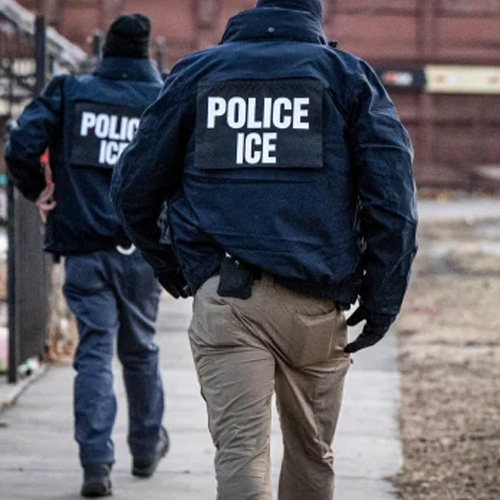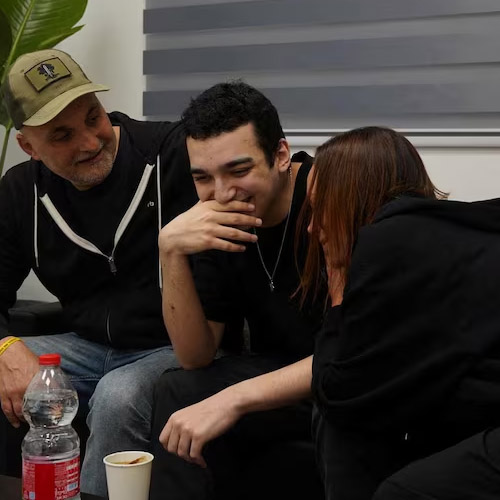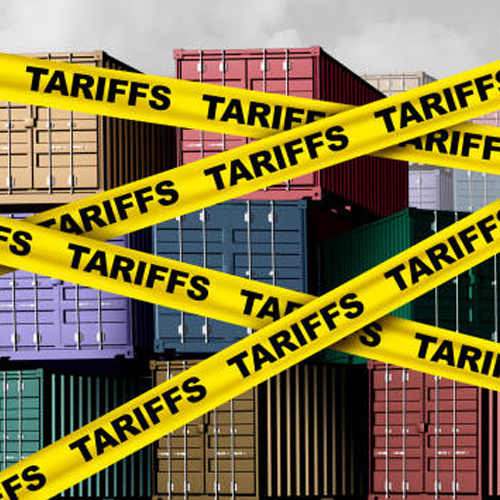TRUMP ADMINISTRATION TARGETS INTERNATIONAL STUDENTS WHO SUPPORT PALISTINE
TRUMP ADMINISTRATION TARGETS INTERNATIONAL STUDENTS WHO SUPPORT PALISTINE

Universities across the United States are raising alarms over unexpected visa revocations affecting international students, with many institutions discovering their students' legal residency status has been terminated with minimal notice to either the students or schools.
Hundreds of students and recent graduates have seen their United States visas revoked by immigration officials since President Donald Trump took office for a second time on January 20, and several have also been arrested.
Many of the targets of the visa revocations and arrests are students who participated in pro-Palestine protests that erupted on campuses across the country in 2024 during Israel’s war on Gaza. Others are individuals with more indirect links to Palestine or those who have shown support for Gaza on social media.
Harvard, Stanford, Michigan, UCLA, and Ohio State University are among the institutions that have reported students having their legal status terminated. This marks a significant shift from previous practices, where visas were typically revoked only after schools notified the government that student had fallen out of compliance with requirements.
"What you're seeing happening with international students is really a piece of the much greater scrutiny that the Trump administration is bringing to bear on immigrants of all different categories," explained Michelle Mittelstadt, director of public affairs at the Migration Policy Institute.
While some visa cancellations have targeted students involved in pro-Palestinian activism, including the high-profile detention of Mahmoud Khalil, a green card holder who led protests at Columbia University, many schools are reporting revocations affecting students with no known connection to protests. Some cases cite past infractions like traffic violations, while in other instances, the reasons remain unclear.
Under typical procedures, international students must obtain an F-1 visa by demonstrating financial support for their studies and maintaining good academic standing. The State Department manages entry visas, while the Department of Homeland Security oversees students' legal status once they're in the country.
The current situation represents a significant change. Previously, students who had visas revoked could still maintain legal residency status and complete their studies, with the revocation only affecting their ability to leave and re-enter the country. Now, students losing residency status must leave immediately or risk detention.
"The very public actions that are being taken by ICE and the Department of Homeland Security around some of these students, where they are removing these students from their homes or from their streets, that's not usually done unless there is a security issue when a student visa is revoked," said Sarah Spreitzer, vice president of government relations at the American Council on Education. "The threat of this very quick removal is something that's new."
In response, colleges are seeking answers from federal authorities while advising international students to carry their immigration documents at all times. University leaders describe growing uncertainty and anxiety on campuses.
University of Massachusetts Boston Chancellor Marcelo Suárez-Orozco, whose institution has seen seven community members affected, including two current students, summarized the situation: "These are unprecedented times, and our normal guiding principles for living in a democratic society are being challenged. With the rate and depth of changes occurring, we must be thoughtful in how we best prepare, protect, and respond."
Navigating the Process
Foreign students seeking to study in the United States face a comprehensive visa application process requiring both academic admission and government approval before they can begin their educational journey on American soil.
After securing acceptance to a U.S. educational institution, prospective international students must obtain an F-1 visa through a formal application and interview at a U.S. embassy or consulate in their home country. During this process, applicants must demonstrate sufficient financial resources to support themselves throughout their academic program.
Once in the United States, F-1 visa holders must maintain good academic standing and adhere to strict employment restrictions that generally limit their ability to work off-campus during their studies.
The visa system operates under a dual-agency framework, with the State Department managing entry visas while the Student and Exchange Visitor Program under the Department of Homeland Security oversees international students' legal status after their arrival in the country.
“I don’t know actually if it’s primarily student visas. It’s a combination of visas. They’re visitors to the country. If they’re taking activities that are counter to our foreign – to our national interest, to our foreign policy, we’ll revoke the visa”, said Secretary of State - Marco Rubio when taking questions from the press.
Related News .
Stay updated with the most important events.




